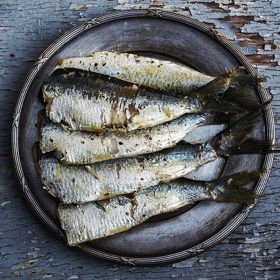Naturopathic Treatment of Lupus
Written by Lloyd Gee
May 10th is World Lupus Day and is promoted to raise awareness of the disease and improve our understanding of its impact.
Lupus is an autoimmune disease and if left untreated, severe cases of Lupus can cause permanent organ damage or even death. There are a wide range of symptoms associated with Lupus which means that it is often not detected or is misdiagnosed. Immune suppressive drugs, such as steroids, are the most commonly used to control symptoms, but from a naturopathic perspective there are many things that can help and may reduce dependence on these drugs.
The most common type of Lupus is Systemic Lupus Erythematosus (SLE). Drug induced Lupus is another common form – drugs including some chemotherapy, anti-fungal and antihypertensive drugs have been associated with inducing Lupus. 90% of those with Lupus are female and it mainly develops between the ages of 15 and 55. Around 1 in 3,500 people have Lupus. The incidence has increased substantially in the last 50 years.
Symptoms of Lupus include kidney problems, heart and lung issues, sensitivity to light, hair loss, rashes and mouth ulcers but the most common symptoms are extreme fatigue and joint or muscle pain that does not go away after resting. A classic sign that many, but not all, Lupus sufferers have is a butterfly rash. This covers both cheeks and meets at the bridge of the nose. As many of the symptoms are also those of Fibromyalgia – particularly the extreme tiredness and joint or muscle pain, there is often difficulty diagnosing between them and they can co-exist. However, Lupus is an auto-immune disease – it is caused by an immune system dysregulation, whereas Fibromyalgia is not considered an auto-immune disease and has no known cause. In my practice there are many similarities in the treatment I provide for both.
There is no easy model to explain what triggers immune system dysregulation and what sustains it. There may be various combinations of predisposing, triggering and perpetuating factors that are involved. These include: genetic susceptibility, microbes such as viruses and mycoplasma, tissue damage, defects in various aspects of immune function, food allergy or intolerance, intestinal dysbiosis and factors such as exposure to toxins, chemicals, drugs and radiation.
 Naturopathic Approach
Naturopathic Approach
I test for nutritional deficiencies, food sensitivities and other factors using Asyra equipment and then the main aims of the treatment using herbs and nutrition are:
• Modulate autoimmunity
• Reduce inflammation
• Protect the central nervous system
• Ensure eliminatory pathways are working well to rid the body of toxins
• Treat current or subclinical chronic infections
• Optimise digestion to ensure complete breakdown of food and maximum absorption
Dietary Advice
• Have more antioxidant-rich fruits and vegetables. Supplementation with vitamin C is also recommended.
• Eat mainly an organic/biodynamic wholefood based diet
• Address nutritional deficiencies with a balanced diet and supplements where necessary.
• Protein intake needs to be balanced – vegetarian sources are preferred with the addition of small quantities of easily digested animal sources, such as fish and grass-fed meat.
Anti-Inflammatory Diet
Avoid pro-inflammatory foods and prepare foods to reduce inflammatory reactions. Oily fish or fish oils are well known for their anti-inflammatory and immune regulatory effects and are of benefit in Lupus. Omega-3 from dietary sources such as salmon and sardines are encouraged. However, oils high in omega-6 (e.g. corn, safflower, sunflower, peanut and soybean oils) are inflammatory so should be avoided. Spices like turmeric and ginger are also anti-inflammatory.
Eliminate foods that cause sensitivities. The most common are wheat, other gluten grains and dairy. The nightshade family can also cause inflammation – tomatoes, aubergines, peppers, potatoes. Make notes of the food you eat and any symptoms that occur. You may need to try an elimination diet by cutting out single or groups of foods for a week and noting any changes.
Stress can make you more sensitive to foods. Also make sure you eat when you are relaxed and able to chew your food well as full digestion is the most important factor in both absorbing good nutrients and preventing intolerances.
If you want help with managing auto-immune disease or other conditions like Fibromyalgia, book a session with Lloyd Gee our resident Naturopath and Herbalist.